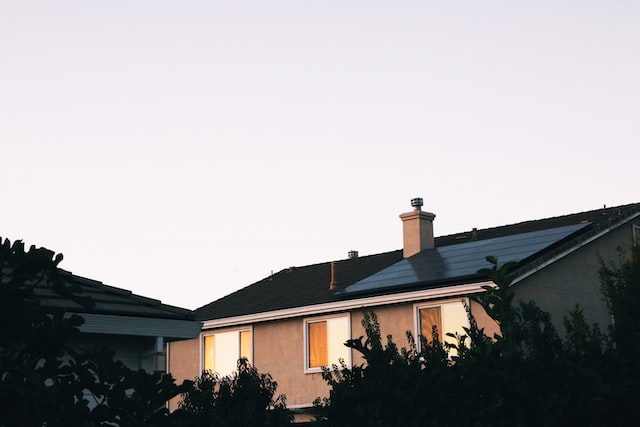Solar panels have become increasingly popular among homeowners looking to reduce their energy costs and minimise their environmental impact. However, a common question arises: do solar panels work effectively without direct sunlight? Let’s delve into how solar panels work and their efficiency in the absence of the sun.
The Magic Behind Solar Panels
Solar panels, often referred to as photovoltaic (PV) panels, convert sunlight into electricity using a process called the photovoltaic effect. This involves the interaction between light and matter, where certain materials, such as silicon, absorb photons from sunlight and release electrons. These electrons are then captured and harnessed to generate electricity.
A typical solar panel consists of multiple solar cells, each made of two layers of silicon. The p-type layer contains ‘holes’ for electrons to move around, while the n-type layer contains extra electrons. When sunlight hits the panel, photons knock electrons loose from the atoms in the silicon layers. These electrons flow through the holes in the p-type layer to the n-type layer, where they are collected by metal contacts and can then flow through an external circuit to power your home or car.
Cloudy Days and Solar Panels Now, let’s address the elephant in the room: can solar panels generate electricity without direct sunlight? The answer is yes, but their efficiency is reduced. Solar panels can still generate electricity on cloudy or overcast days because they can capture diffused sunlight, which is the sunlight that has been scattered by clouds, dust, and other particles in the atmosphere. However, the efficiency of solar panels drops significantly in such conditions. Typically, solar panels can produce 10-25% of their normal power output on a cloudy day.
Additionally, solar panels can also generate electricity from indirect sunlight or ambient light. This is why solar panels can still produce some electricity even during dawn or dusk.
Maximizing Efficiency While solar panels can work without direct sunlight, their efficiency is optimized when they receive maximum sunlight. Here are some tips to maximise the efficiency of your solar panels:
- Orientation: Ensure that the solar panels are installed facing the direction that receives the most sunlight throughout the day. In the northern hemisphere, this is usually south-facing.
- Angle: Adjust the angle of the solar panels to match the latitude of your location. This will help the panels capture the maximum amount of sunlight.
- Keep it Clean: Dust, dirt, bird droppings, and other debris can accumulate on the surface of the solar panels and reduce their efficiency. Regular cleaning is essential to maintain optimal performance.
- Shade: Avoid installing solar panels in shaded areas or under obstructions like trees or buildings.
While solar panels can generate electricity without direct sunlight, their efficiency is significantly reduced. However, with careful planning and installation, solar panels can still be a viable option for generating clean, renewable energy even in regions with less sunny days. Additionally, solar panels’ ability to produce electricity from diffused and ambient light means they can still contribute to your energy needs on cloudy days or during dawn and dusk. Ultimately, while solar panels are most effective in direct sunlight, they can still provide value and contribute to reducing your carbon footprint and energy bills even without the sun shining brightly.


